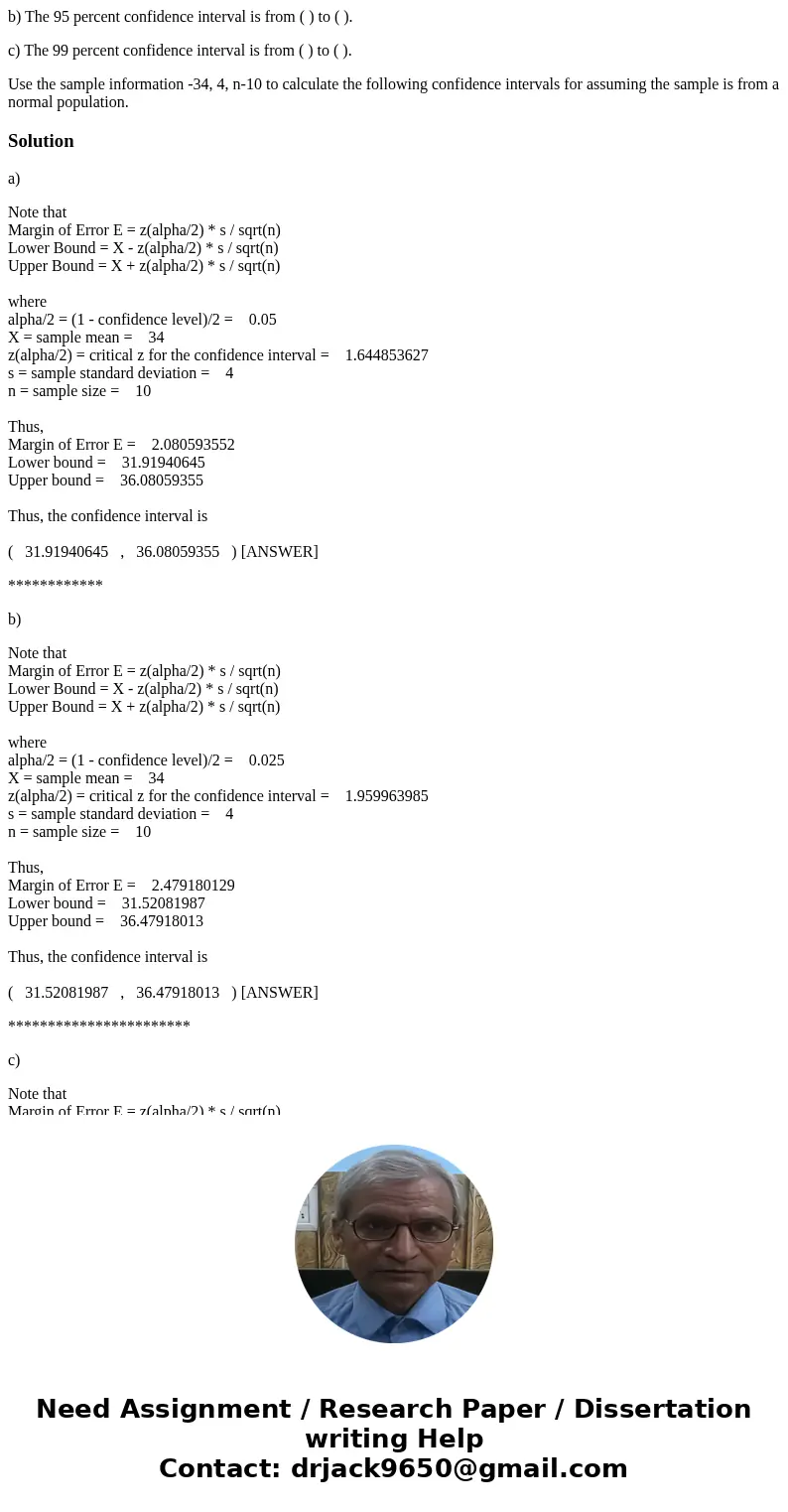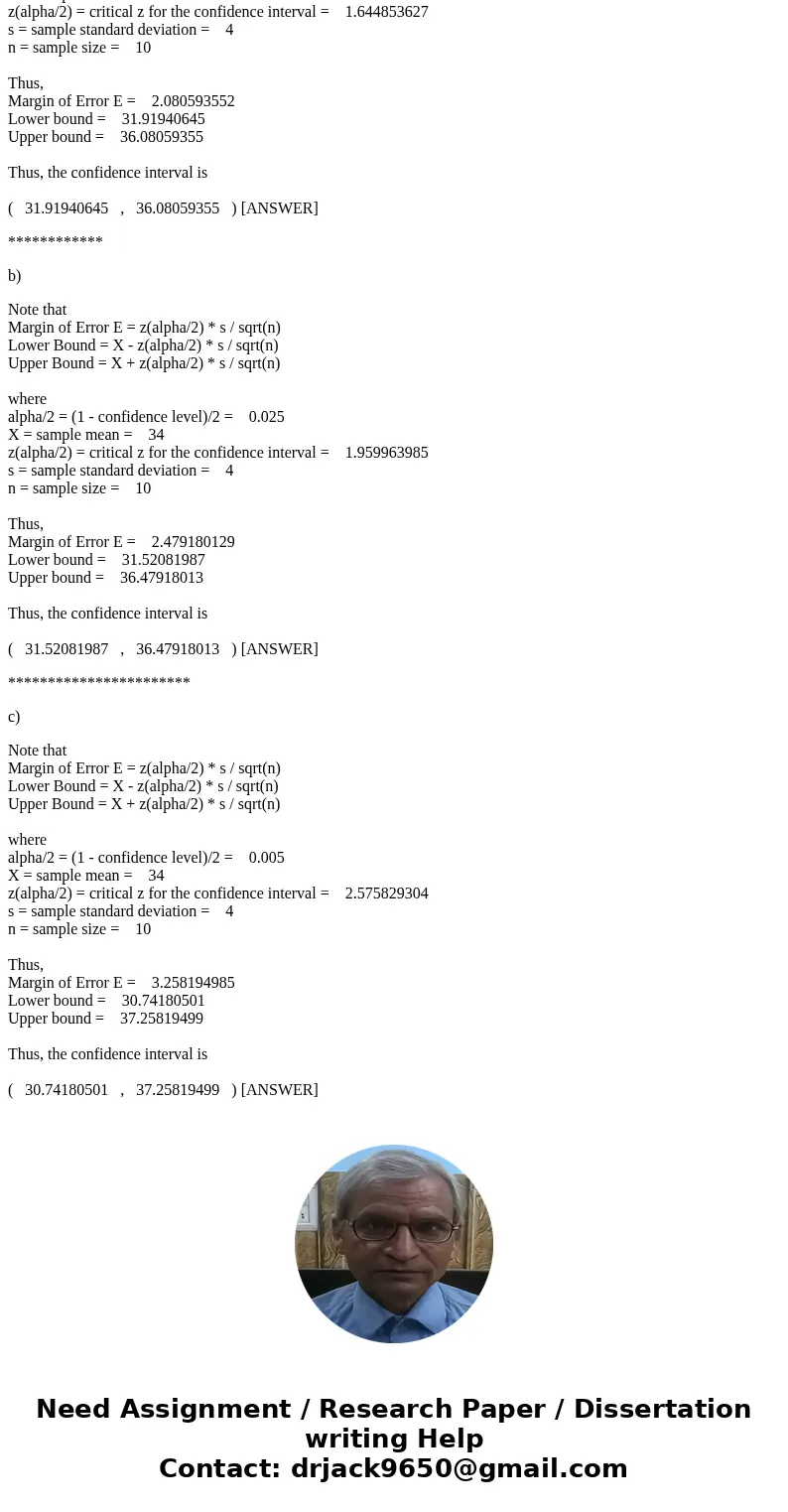b The 95 percent confidence interval is from to c The 99
b) The 95 percent confidence interval is from ( ) to ( ).
c) The 99 percent confidence interval is from ( ) to ( ).
Use the sample information -34, 4, n-10 to calculate the following confidence intervals for assuming the sample is from a normal population.Solution
a)
Note that
Margin of Error E = z(alpha/2) * s / sqrt(n)
Lower Bound = X - z(alpha/2) * s / sqrt(n)
Upper Bound = X + z(alpha/2) * s / sqrt(n)
where
alpha/2 = (1 - confidence level)/2 = 0.05
X = sample mean = 34
z(alpha/2) = critical z for the confidence interval = 1.644853627
s = sample standard deviation = 4
n = sample size = 10
Thus,
Margin of Error E = 2.080593552
Lower bound = 31.91940645
Upper bound = 36.08059355
Thus, the confidence interval is
( 31.91940645 , 36.08059355 ) [ANSWER]
************
b)
Note that
Margin of Error E = z(alpha/2) * s / sqrt(n)
Lower Bound = X - z(alpha/2) * s / sqrt(n)
Upper Bound = X + z(alpha/2) * s / sqrt(n)
where
alpha/2 = (1 - confidence level)/2 = 0.025
X = sample mean = 34
z(alpha/2) = critical z for the confidence interval = 1.959963985
s = sample standard deviation = 4
n = sample size = 10
Thus,
Margin of Error E = 2.479180129
Lower bound = 31.52081987
Upper bound = 36.47918013
Thus, the confidence interval is
( 31.52081987 , 36.47918013 ) [ANSWER]
***********************
c)
Note that
Margin of Error E = z(alpha/2) * s / sqrt(n)
Lower Bound = X - z(alpha/2) * s / sqrt(n)
Upper Bound = X + z(alpha/2) * s / sqrt(n)
where
alpha/2 = (1 - confidence level)/2 = 0.005
X = sample mean = 34
z(alpha/2) = critical z for the confidence interval = 2.575829304
s = sample standard deviation = 4
n = sample size = 10
Thus,
Margin of Error E = 3.258194985
Lower bound = 30.74180501
Upper bound = 37.25819499
Thus, the confidence interval is
( 30.74180501 , 37.25819499 ) [ANSWER]


 Homework Sourse
Homework Sourse